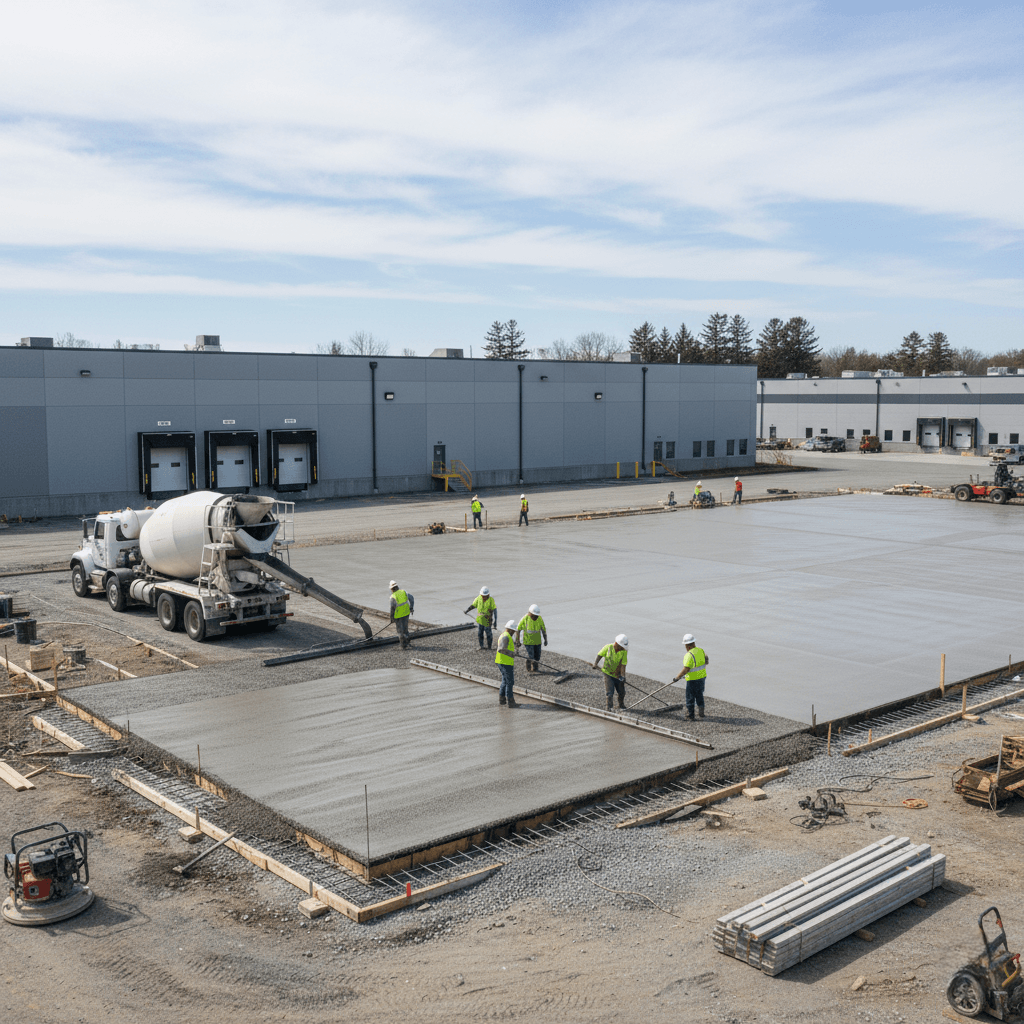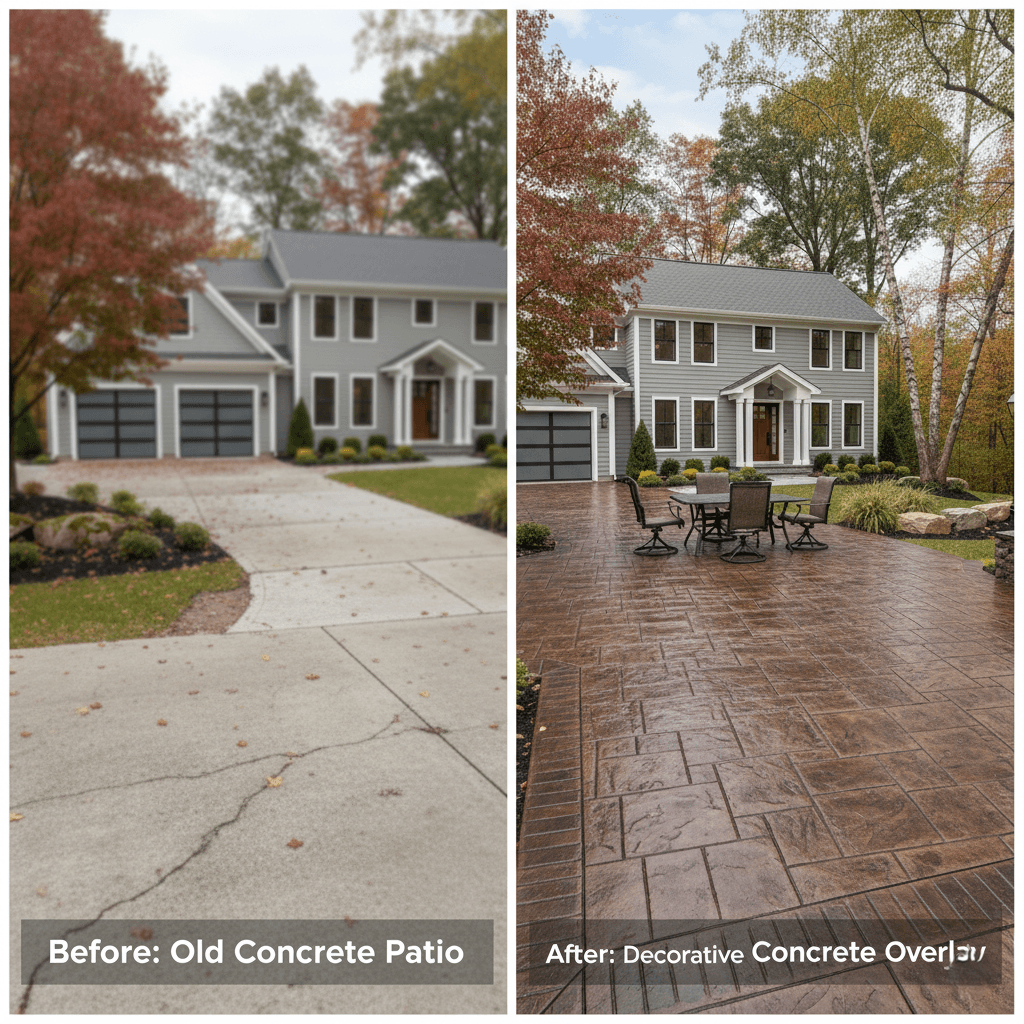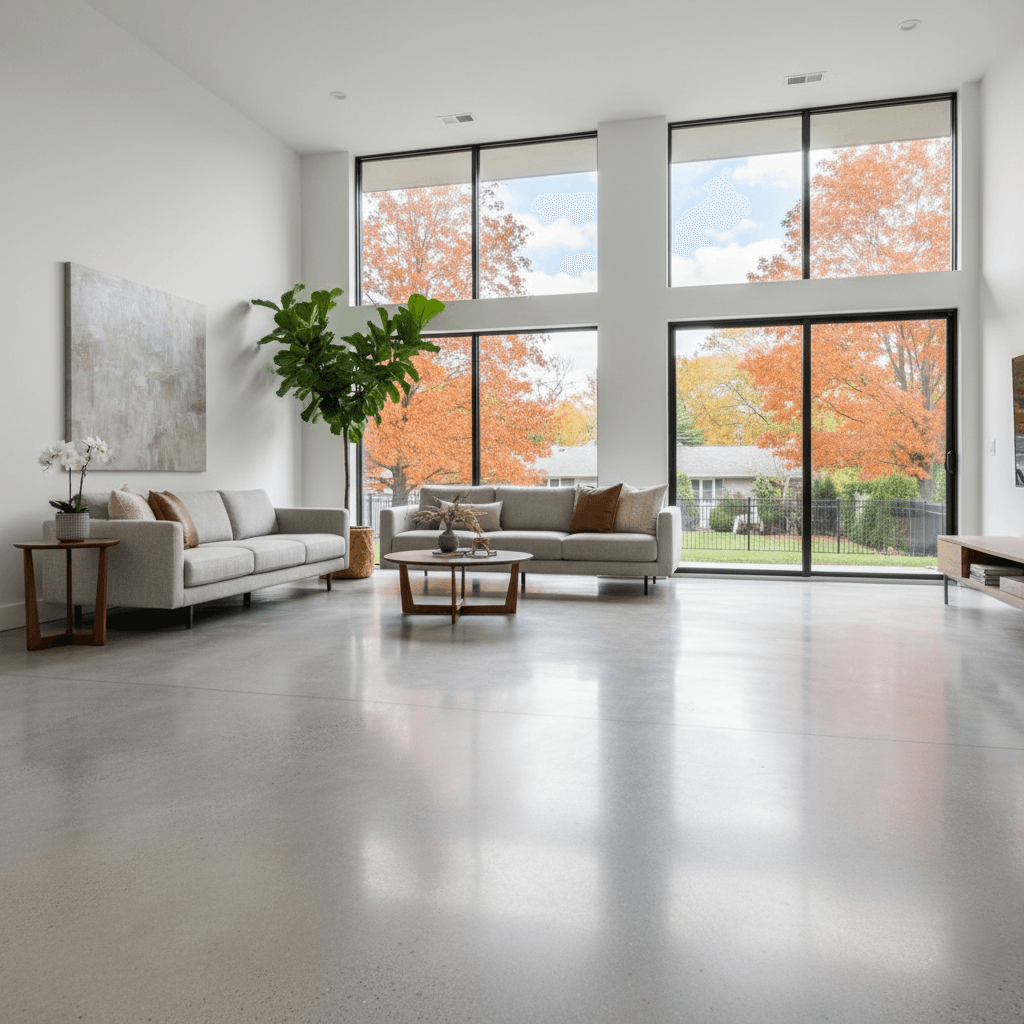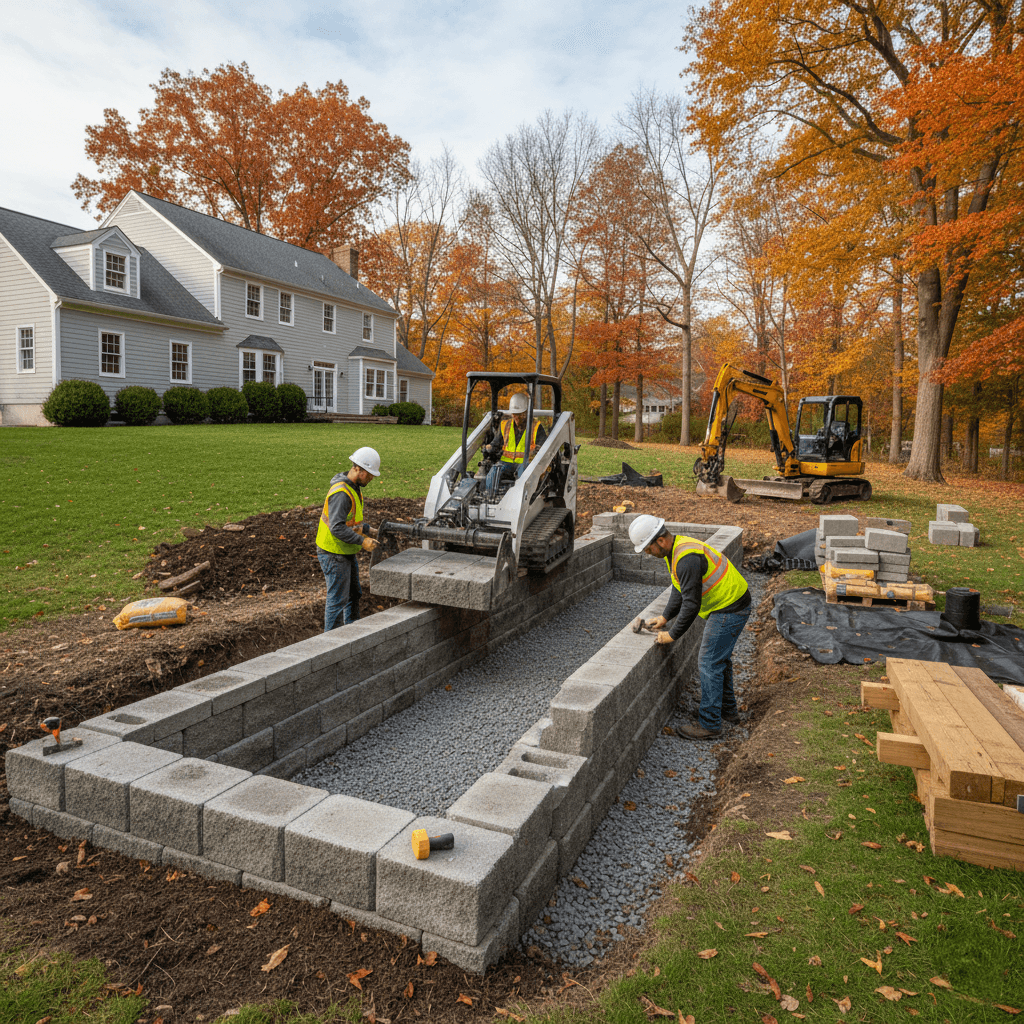Stamped Concrete: Elevating Springfield Outdoor Spaces with Style and Durability
Stamped Concrete Springfield
Springfield homeowners increasingly discover the transformative power of decorative concrete solutions for enhancing outdoor living spaces. Professional stamped concrete installation creates stunning patios, driveways, and walkways that combine aesthetic appeal with long-lasting durability. Massachusetts climate conditions demand flooring solutions that withstand freeze-thaw cycles while maintaining visual appeal throughout changing seasons. Expert contractors understand local soil conditions and weather patterns that influence installation success and longevity. Investment in quality outdoor surfaces significantly enhances property values while providing decades of reliable performance.
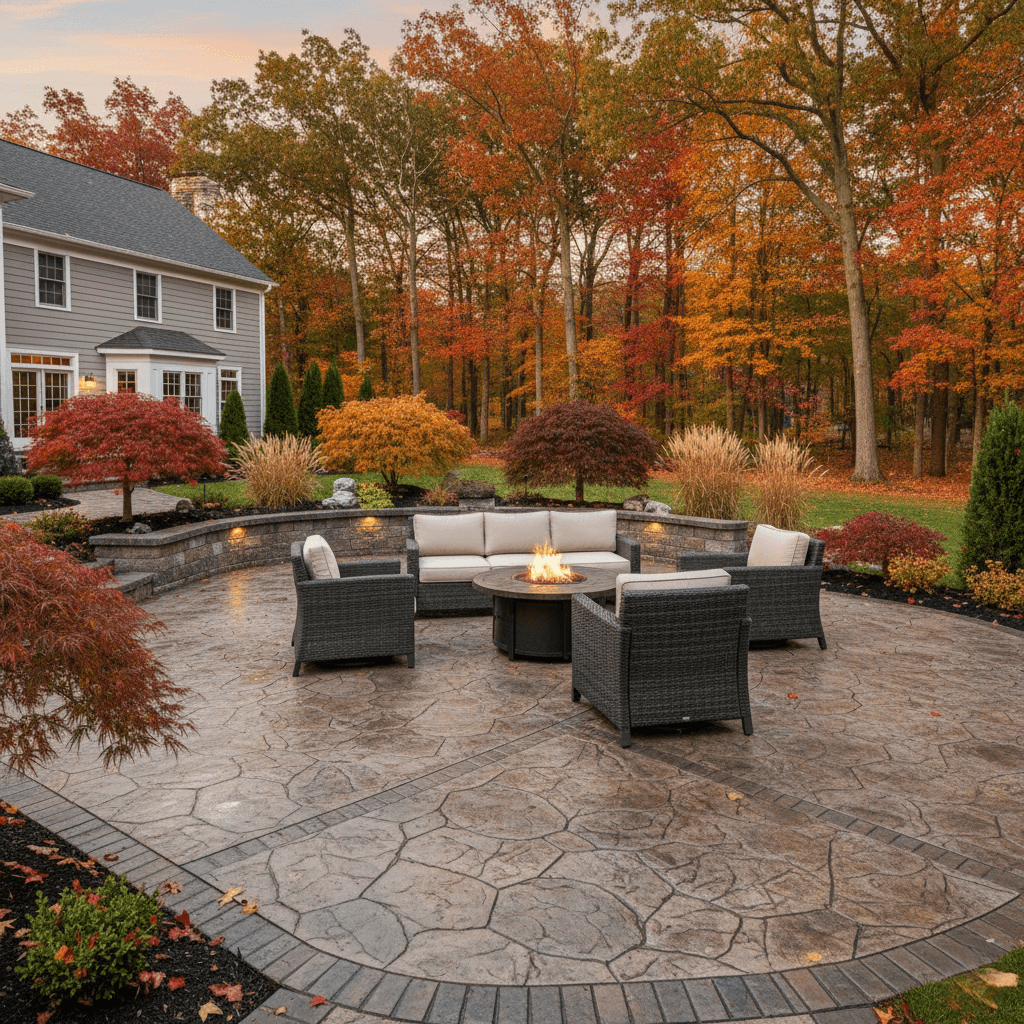
Understanding Stamped Concrete Benefits
Durability stands as the primary advantage of stamped concrete installations, with properly executed projects lasting 25-50 years under typical New England conditions. The process creates surfaces that resist cracking, staining, and weather damage better than traditional pavement materials. Cost-effectiveness becomes apparent when comparing lifecycle expenses with alternatives like natural stone or brick pavers.
Design versatility allows homeowners to achieve the appearance of expensive materials at significantly reduced costs. Professional stamping techniques replicate textures of cobblestone, slate, brick, and natural stone with remarkable accuracy. Color integration through stains and dyes provides unlimited customization possibilities that complement existing architectural elements.
Weather Resistance in Springfield
New England climate challenges require specialized installation techniques and high-quality sealers to prevent moisture penetration during the winter months. Proper base preparation and reinforcement prevent frost heave damage common in Massachusetts soil conditions. Professional contractors use air-entrained concrete mixes that resist freeze-thaw damage throughout seasonal temperature variations.
UV-resistant sealers protect color integrity from fading caused by intense summer sunlight exposure. Quality installations maintain appearance and structural integrity through decades of seasonal cycling. Regular maintenance includes periodic sealer reapplication every 3-5 years, depending on traffic and exposure conditions.
Springfield Installation Costs
Massachusetts stamped concrete projects typically cost $16-20 per square foot for standard installation, including materials and professional labor. Basic single-color patterns start around $8-12 per square foot, while complex multi-color designs with intricate details reach $25-28 per square foot. Project size significantly influences unit pricing, with larger installations benefiting from economies of scale.
Site preparation costs vary based on existing conditions and required excavation depth. Removing old concrete or pavement adds $2-6 per square foot to base pricing. Reinforcement requirements depend on intended use, with driveways requiring additional structural support compared to decorative walkways.
Project-Specific Pricing
Patio installations typically range from $3,200 to $7,600 for a standard 20×20-foot area, including base preparation and finishing. Driveway projects cost $6,900-10,400 for typical two-car dimensions with appropriate thickness and reinforcement. Walkway pricing varies from $800 to $1,700 for standard 4×20-foot installations, depending on pattern complexity.
Premium upgrade, including decorative borders, multiple colors, and custom patterns, increases costs by 30-50% over basic installations. Sealing treatments add $0.13-0.20 per square foot but provide essential protection and enhanced appearance. Professional installation ensures proper timing and technique for optimal results.
Popular Pattern Options
Cobblestone patterns create a timeless appeal that complements Springfield’s historic architecture near landmarks like the Dr. Seuss Museum and Connecticut River waterfront areas. Random stone textures provide a natural appearance while maintaining uniformity across large installations. Brick patterns offer classic New England charm suitable for residential and commercial applications.
Slate impressions deliver a sophisticated appearance ideal for upscale residential developments throughout the Pioneer Valley region. Wood plank textures create unique outdoor flooring that mimics hardwood without maintenance concerns. Custom designs incorporate geometric patterns and decorative borders that reflect individual style preferences.
Color Integration Techniques
Integral coloring mixed throughout concrete provides consistent base tones that won’t wear away over time. Surface staining creates a variegated appearance with depth and character resembling natural materials. Antiquing techniques add realistic aging effects that enhance the authenticity of stone and brick replications.
Multiple color applications create a dramatic visual impact through contrasting highlights and shadow effects. Professional color matching ensures harmony with existing landscape elements and architectural features. UV-stable pigments maintain vibrancy throughout years of sun exposure without significant fading.
Installation Process Overview
Professional installation begins with a thorough site evaluation and soil testing to determine appropriate base requirements. Excavation depth varies based on intended use and local frost line considerations. Proper drainage installation prevents water accumulation that could compromise structural integrity over time.
Concrete placement requires precise timing to achieve optimal stamping conditions before the initial set occurs. Stamping operations demand experienced crews working efficiently to complete patterns while concrete remains workable. Quality control measures ensure consistent depth and alignment throughout the entire installation area.
Critical Timing Factors
Seasonal installation windows optimize concrete curing conditions while avoiding extreme temperatures that affect final quality. Spring and fall seasons provide ideal moderate temperatures and humidity levels for proper concrete development. Summer installations require special precautions to prevent rapid moisture loss during hot weather periods.
Daily weather monitoring influences pour scheduling and curing procedures to ensure optimal results. Professional contractors understand local climate patterns and adjust procedures accordingly. Proper curing techniques maximize strength development and surface durability regardless of seasonal conditions.
Design Considerations for Springfield Properties
Springfield’s diverse architectural styles, from Victorian homes to modern developments, require thoughtful design integration for optimal curb appeal. Historic district properties near Court Square and Forest Park benefit from traditional patterns that complement existing neighborhood character. Contemporary designs suit newer developments while respecting surrounding landscape elements.
Drainage planning becomes crucial in Connecticut River valley locations where soil conditions and topography influence water management. Proper slope design directs runoff away from structures while maintaining an attractive appearance. Integrated drainage systems prevent pooling and ice formation during the winter months.
Landscape Integration
Professional design considers existing vegetation and planned landscaping to create cohesive outdoor environments. Transition zones between stamped areas and natural surfaces require careful planning for visual continuity. Color selection coordinates with seasonal plant materials and permanent landscape features.
Lighting design enhances evening enjoyment while highlighting decorative concrete features. Strategic placement illuminates texture and pattern details while providing functional pathway guidance. Energy-efficient LED systems reduce operating costs while delivering superior performance and longevity.
Maintenance and Longevity
Regular cleaning with mild detergents and soft brushing maintains appearance while protecting sealer integrity. Annual inspection identifies potential issues before they develop into costly repairs. Professional maintenance services provide comprehensive care, including cleaning, resealing, and minor repairs as needed.
Sealer reapplication every 3-5 years preserves color vibrancy and weather protection throughout Massachusetts’ seasonal extremes. Quality sealers enhance stain resistance while providing slip-resistant surfaces for safety. Proper maintenance extends surface life significantly beyond untreated installations.
Seasonal Care Requirements
Winter protection includes avoiding deicing chemicals that can damage concrete surfaces and sealers. Sand or kitty litter provides traction without chemical damage during icy conditions. Spring cleaning removes accumulated debris and salt residues that could affect appearance and durability.
Summer maintenance focuses on protecting against oil stains and cleaning spills promptly to prevent permanent discoloration. Fall preparation includes thorough cleaning and inspection before winter weather arrives. Professional assessment identifies any repairs needed before cold weather prevents proper curing.
Springfield Concrete Masters specializes in creating beautiful, durable stamped concrete installations throughout the Springfield area. Our experienced team understands local climate challenges and soil conditions, delivering superior results that enhance outdoor living spaces while providing exceptional long-term value and performance for residential and commercial properties.

